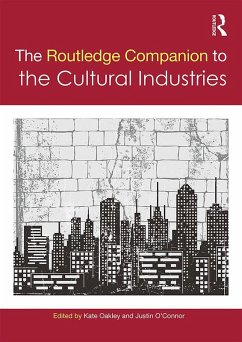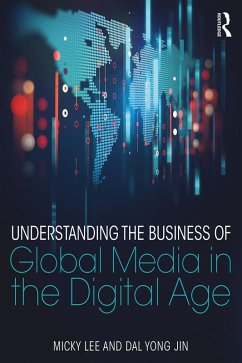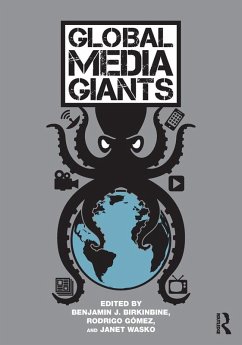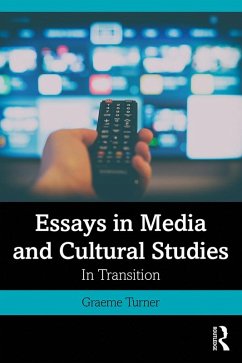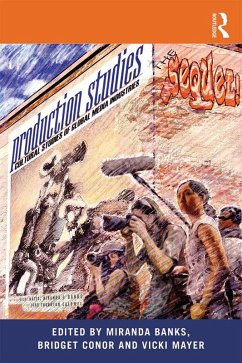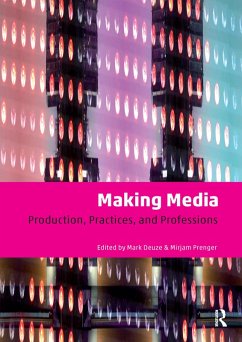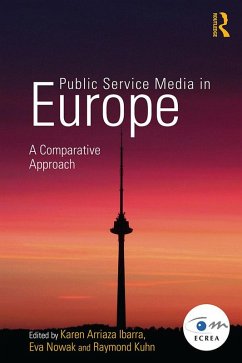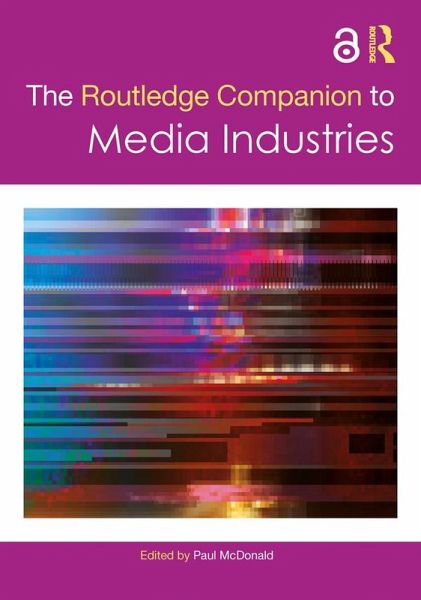
The Routledge Companion to Media Industries (eBook, ePUB)
Versandkostenfrei!
Sofort per Download lieferbar
42,95 €
inkl. MwSt.
Weitere Ausgaben:

PAYBACK Punkte
21 °P sammeln!
Bringing together 49 chapters from leading experts in media industries research, this major collection offers an authoritative overview of the current state of scholarship while setting out proposals for expanding, re-thinking and innovating the field.Media industries occupy a central place in modern societies, producing, circulating, and presenting the multitude of cultural forms and experiences we encounter in our daily lives. The chapters in this volume begin by outlining key conceptual and critical perspectives while also presenting original interventions to prompt new lines of inquiry. Ot...
Bringing together 49 chapters from leading experts in media industries research, this major collection offers an authoritative overview of the current state of scholarship while setting out proposals for expanding, re-thinking and innovating the field.
Media industries occupy a central place in modern societies, producing, circulating, and presenting the multitude of cultural forms and experiences we encounter in our daily lives. The chapters in this volume begin by outlining key conceptual and critical perspectives while also presenting original interventions to prompt new lines of inquiry. Other chapters then examine the impact of digitalization on the media industries, intersections formed between industries or across geographic territories, and the practices of doing media industries research and teaching. General ideas and arguments are illustrated through specific examples and case studies drawn from a range of media sectors, including advertising, publishing, comics, news, music, film, television, branded entertainment, live cinema experiences, social media, and music video.
Making a vital and significant contribution to media research, this volume is essential reading for students and academics seeking to understand and evaluate the work of the media industries.
Chapter 10 of this book is freely available as a downloadable Open Access PDF under a Creative Commons Attribution-Non Commercial-No Derivatives 4.0 license available at http://www.taylorfrancis.com
Media industries occupy a central place in modern societies, producing, circulating, and presenting the multitude of cultural forms and experiences we encounter in our daily lives. The chapters in this volume begin by outlining key conceptual and critical perspectives while also presenting original interventions to prompt new lines of inquiry. Other chapters then examine the impact of digitalization on the media industries, intersections formed between industries or across geographic territories, and the practices of doing media industries research and teaching. General ideas and arguments are illustrated through specific examples and case studies drawn from a range of media sectors, including advertising, publishing, comics, news, music, film, television, branded entertainment, live cinema experiences, social media, and music video.
Making a vital and significant contribution to media research, this volume is essential reading for students and academics seeking to understand and evaluate the work of the media industries.
Chapter 10 of this book is freely available as a downloadable Open Access PDF under a Creative Commons Attribution-Non Commercial-No Derivatives 4.0 license available at http://www.taylorfrancis.com
Dieser Download kann aus rechtlichen Gründen nur mit Rechnungsadresse in A, B, BG, CY, CZ, D, DK, EW, E, FIN, F, GR, HR, H, IRL, I, LT, L, LR, M, NL, PL, P, R, S, SLO, SK ausgeliefert werden.




